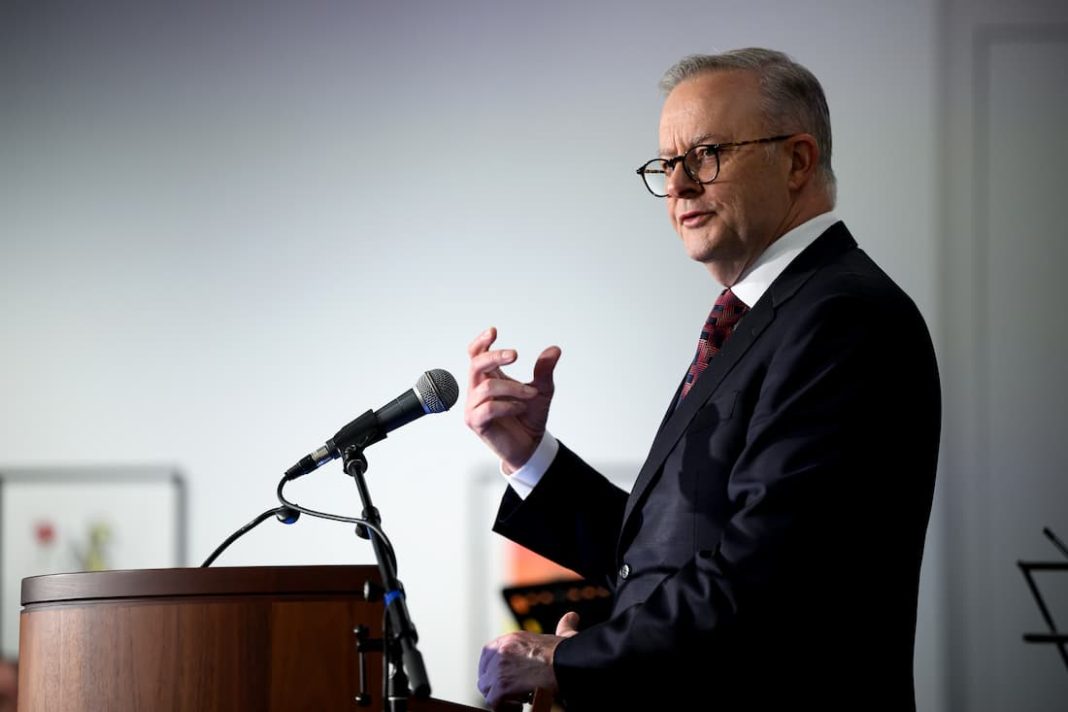Anthony Albanese has brushed off concerns a major manufacturing initiative could lead to an over-reliance on government subsidies.
The prime minister unveiled the Future Made in Australia Act on Thursday, promoting local manufacturing and safeguarding the nation’s control over resources and critical minerals.
The plan has been likened to the Inflation Reduction Act in the US.
However, it has attracted criticism from Labor-appointed Productivity Commission chair Danielle Wood.
“We risk creating a class of businesses that is reliant on government subsidies and that can be very effective in coming back for more,” she told the Australian Financial Review.
Ms Wood also warned that resources could be taken away from other sectors of the economy.
But Mr Albanese dismissed the concerns, saying there was a need to act.
“We’ve certainly considered the opportunity that is there,” he told Sydney radio station 2SM on Friday.
“Now, we can sit back and watch the whole world go past us, or we can take up the opportunities that are there.
“We can be competitive because of the way that production has changed.”
Opposition Leader Peter Dutton said Ms Wood’s viewpoint was a concern.
“The fact is that over the last two years, manufacturing businesses have gone into bankruptcy – it’s gone up by 300 per cent,” he told Nine’s Today program on Friday.
“We know the energy system is broken – the government’s renewables-only policy is driving up the price of your electricity bill at home … it is for business as well and that’s what’s fuelling inflation.”
But Government Services Minister Bill Shorten said Australia needed more home-grown manufacturing.
“We need to be more sovereign in this country and sometimes that will involve government assistance,” he said.
“If you just leave it to the market, all this country will be will be a bank and a quarry.”
Mr Albanese said there was growing potential for industry within the renewables sector within Australia.
“We can sit in the corner and do nothing … pretending there wasn’t a shift to clean energy, or we can seize the advantages that we have,” he said.
“I want to see us making more things here because it strengthens our economy, it creates jobs, it helps with our national security, as well as lifting living standards, particularly in our regions.”
Shadow treasurer Angus Taylor warned the manufacturing plan would lead to an increase in inflation.
“It won’t solve the manufacturing challenges we’ve got, it’s a Band-Aid on a bullet wound, and we’re already seeing that an equivalent set of interventions that have been made in the United States … is driving up inflation,” he told ABC Radio.
“If we want strong manufacturing in this country, and we do, we need to get back to the fundamentals of affordable, reliable energy, flexible industrial relations that delivers higher real wages and competitive workplaces.”
By Tess Ikonomou and Andrew Brown in Canberra



